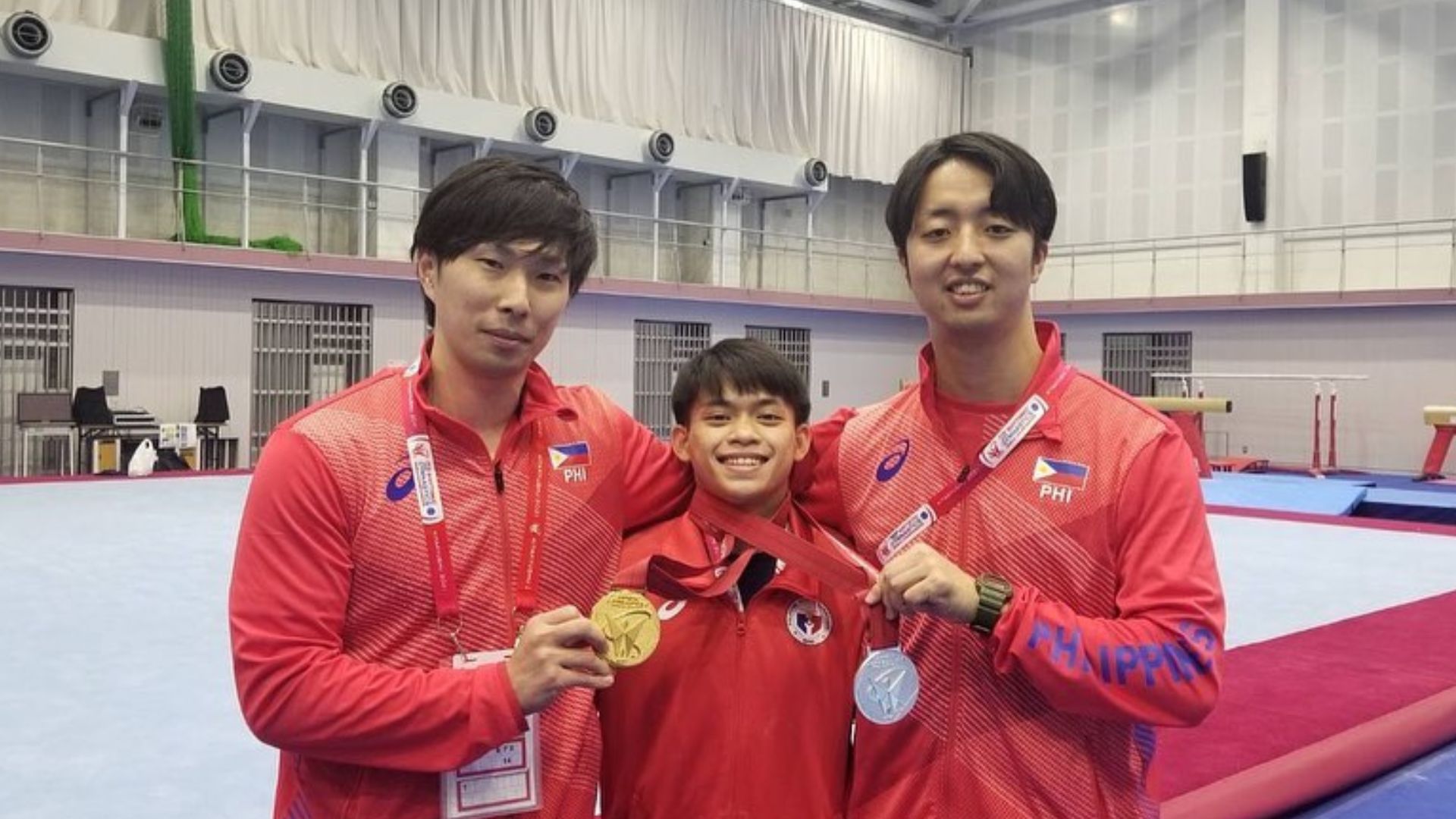Filipino Olympian Carlos “Caloy” Yulo’s journey from a young talent in Manila to an international gymnastics champion was recently raised in a heartfelt social media post by Wilfredo Garrido.
The Facebook post reminisced about Caloy’s formative years in Japan under the guidance of his former coach, Munehiro “Mune” Kugimiya.
Coach Mune, a former gymnast whose career was cut short by injury, was sent by the Japanese gymnastics federation to the Philippines to train promising Filipino athletes while also addressing his own financial needs. It was during this time that he discovered young Caloy Caloy, then just 13 years old, and saw exceptional potential in him.
“There was something in Caloy that showed promise in Coach Mune’s eyes: the build, the strength, the enthusiasm, and above all, the attitude,” Garrido shared in the post. Despite his own limited resources, Coach Mune approached Caloy’s mother with an offer to train her son in Japan, without any financial assurances but with a commitment to enhance his gymnastics skills.
In 2016, Caloy moved to Japan, where Coach Mune took him under his wing. Coach Mune, who was teaching elementary students during the day and living alone in a small apartment, welcomed Caloy into his home and provided him with everything he needed. Coach Mune believed that the training environment in Japan would be more beneficial for Caloy compared to the Philippines.

Angelica Yulo, Caloy’s mother, expressed her pride in the decision. She was proud that of all the children Coach Mune saw, he chose Caloy. Not inquiring thoroughly about living arrangements or financial support, she trusted Coach Mune’s belief in her son’s potential.
Despite the language barrier — Coach Mune knew little English and Caloy had no Japanese language skills — the two communicated through gestures and simple words. Coach Mune even took on the role of language tutor, having Caloy keep a diary in kanji, which Coach Mune would correct meticulously.
Coach Mune’s commitment extended beyond gymnastics. He taught Caloy Japanese cooking, household chores, and fostered a disciplined yet supportive environment. Caloy’s life in Japan was marked by solitude, as he had little social interaction due to his intense training schedule and language difficulties.
“He lacks motivation sometimes,” Coach Mune observed. “But I know his potential, when he is up to it, he can do anything.”
When Caloy struggled with a task, he would often sit silently on the mat, overwhelmed. Coach Mune would then provide gentle guidance on necessary adjustments. Despite occasional lapses in motivation, Coach Mune remained confident in Caloy’s potential. For example, Caloy initially struggled with the vault, performing only a single flip and landing on his back. Coach Mune analyzed the technique in slow motion, offering specific corrections and encouraging repeated practice.
Over time, Caloy progressed from one flip to two, and eventually to three. Similarly, in the floor exercise, he mastered complex twists and turns through rigorous training, eventually mastering challenging routines and excelling in competitions.
Financial support was minimal, but Coach Mune managed to secure a small stipend from local gymnastics societies and sponsors. His dedication to Caloy’s mental and physical development played a crucial role in Caloy’s success on the international stage.
Under Coach Mune’s guidance, Caloy achieved remarkable feats, including winning multiple gold medals in the SEA Games, Asian Championships, and FIG World Cup series. His crowning achievements came with titles at the World Championships, where he gained global recognition.
After the 2023 Asian Championships, Caloy and Coach Mune parted ways due to personal reasons. The separation was amicable, with Caloy expressing deep gratitude for Coach Mune’s role in his career.
Despite their parting, Coach Mune’s role as a mentor helped in guiding Caloy in his path from a promising young gymnast into a two-time Olympic gold medallist, proving the lasting impact of their journey together.





